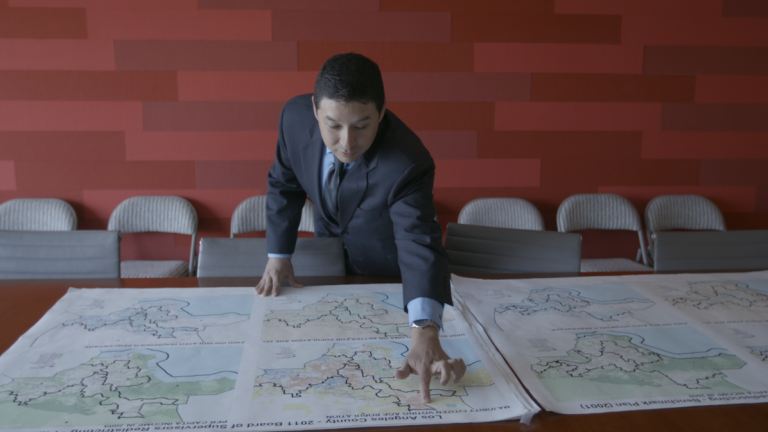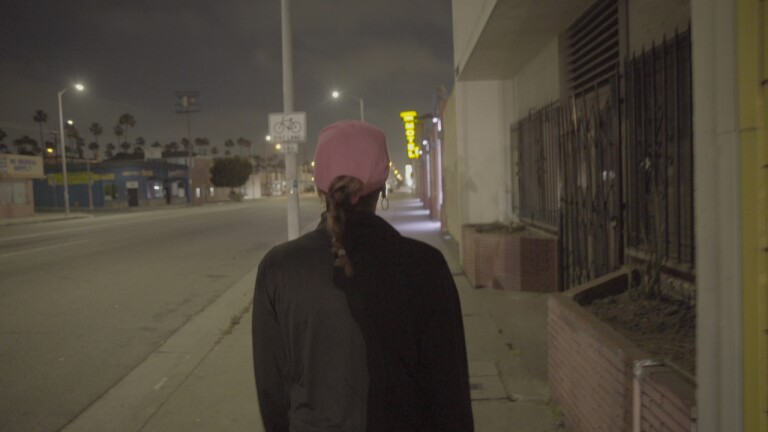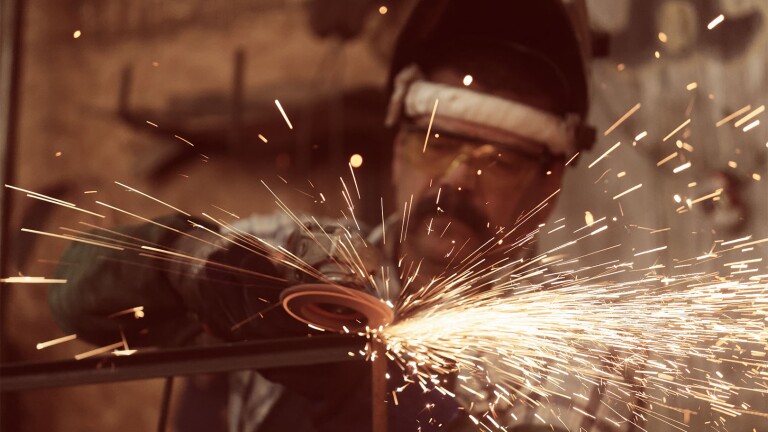Extreme Green: Dumpster Diving to Prevent Food Waste
In this installment of our "Extreme Green" series, meet people who take environmental living to new limits: dumpster divers. They are a rare breed of daring environmentalists who can't stand to see good food thrown away, so they rescue it. Anchor Val Zavala delved into the world of dumpster diving and was shocked to see how much food we waste.
TRANSCRIPT:
Val Zavala: In a small apartment in Highland Park, an unusual group of people are gathering. They're on a mission that will last until three in the morning and take them into places most of us wouldn't touch. But first, a hot meal. But not just any meal.
Eric Einem [to others at the dinner table]: I asked him if there's anything he wanted me to bring from the dumpster.
Zavala: All the food on this table came from the trash. That's right. These folks are feasting on discarded food. Call them "dumpster divers."
Zavala [to Eric]: Well, the first thing I'm sure you hear from people is, "Yuck! How can you do this, and aren't you afraid of getting sick?"
Eric: Yeah, I get that sometimes. Although, surprisingly, a lot of people I tell about it, you know, are like, "That's cool."
Zavala: And, surprisingly, for the four years that Eric has been doing this, he's never gotten sick.
Eric: I use common sense, "?cause you can tell by the, you know, by the smell or how it looks.
Zavala: Michel hasn't bought food in years. He came to the U.S. from France and remembers how shocked he was by our huge refrigerators.
Zavala [to Michel]: Do we waste a lot compared to the French?
Michel Breard: I think so - Europe in general. I mean, just look at the size of a fridge. You know, if you go in Paris, kitchens are small, and we still can cook in a small fridge. We don't need an island to cook. I'm sorry, but who needs an island?
Zavala: Tonight, they've invited others "? friends and strangers "? on one of their regular dumpster diving tours.
Eric [to others getting on bikes]: Ready?
Zavala: It's 11:30 p.m. Some of them go on bikes. Others follow in cars. They don't want to reveal the stores they're going to. It'll only increase the chance that the dumpsters will get padlocked. The first location is easily accessible.
Eric [going through dumpster]: Tomatillos?
Woman: And you're never concerned that there's going to be, like, stuff like this?
Michel: Yeah, yeah, yeah. Be careful and don't take any chances.
Zavala: Dumpster diving is not for everyone, but it has gained popularity among some daring environmentalists who hate to see food go to landfills.
That's what motivated Jeremy Seifert to make a documentary called Dive!.
Seifert [clip from Dive!]: In the United States, even our trashcans are filled with food. You just have to go get it.
Seifert: When you pull out of the trash what should be food for people, and know that this was headed for the landfill, where it will be buried and produce methane which is 24 times more potent than carbon dioxide, and instead it feeds you, it really changes the way you look at food waste and hunger.
Zavala: His son has grown up on food rescued from dumpsters.
Seifert: And my wife was pregnant with my second son, Scout, while I was making the film, and, I mean, at that time, 70 percent of our food was coming from the trash can. And he's a strong, very cute, highly intelligent baby.
Zavala: A U.S. Agriculture Department study found that, of all the food produced for domestic consumption, 25 percent of it is thrown away.
Seifert: This is not something that our grandparents did. You know, generations back, they were much more careful with their food. They did know hunger.
Dumpster Diver [clip from Dive!]: Apples, oranges, everything!
Seifert: Food waste is a bad habit born out of excess.
Zavala: It's about 1 a.m., and the divers are heading to a place Eric and Michel have been to before. They say this place is usually a bonanza. And yes, technically, they're trespassing.
Eric: A lot of bananas and some potatoes, grapes, spinach, a big roll of paper...
Michel: If anyone wants to do art "? butcher paper.
Eric: And lettuce. So, it's like probably two trunk loads of food that we got.
Zavala: You may wonder why grocery stores don't give this food away or let employees take it home.
Seifert [clip from Dive!]: I was just...
Store Manager: We're also not allowed to comment on anything.
Zavala: That's what Seifert wanted to find out, but most of the time, he got the cold shoulder from corporate headquarters.
Seifert [clip from Dive!]: They won't talk to me "? company policy, no interviews.
Store Manager: Nope. No interview.
Seifert: I'm Jeremy.
Store Manager: Nice to meet you.
Seifert: Thank you.
Store Manager: You got it. No problem.
Seifert: I know that a lot of it was or is systemically a fear of litigation. "What if we give away this perishable food and someone gets sick?" But the Good Samaritan Act put in place in 1996 by President Bill Clinton protects food providers when they give donations, and that Good Sam Act has never been challenged.
Zavala: And there's one grocery chain where dumpster divers won't find much to take home. Albertsons is on the cutting edge of food rescue. Five days a week, food banks pick up extra food from nearly 250 stores. Over four years, that's amounted to a hundred million pounds of edible food going to people who need it.
Rick Crandall is the man in charge of the food rescue program. So far 100 Albertsons stores have achieved zero percent waste.
Rick Crandall: We have some lettuce - you pull some of these leaves off and that will probably be just fine.
Zavala: Potatoes - they are still wrapped.
Crandall: Yup, but they are green.
Zavala: Oh, I see.
Crandall: Sometimes the lights outside will actually turn them green a little bit, but you bake that and I'm sure someone will enjoy a nice baked potato.
Zavala: So that's just a cosmetic thing. That it's green.
Crandall: Yup, absolutely.
Zavala: But it's not just fruits and vegetables.
Zavala [to Crandall]: Meet and cheese and sausage - this is expensive stuff.
Crandall: Very expensive stuff.
Zavala: High quality.
Crandall: Now it is going to people who are food insecure. And doing the right thing for people, planet.
Zavala: A win-win.
Crandall: Win-win.
Zavala: And what does Rick Crandall think of dumpster diving?
Crandall: Some are doing it because they need to eat. I'm not going to tell anybody who's hungry today and I've just gone and had a great meal not to do something like that.
Zavala: It's 2 a.m. The divers arrive back at Eric's place with boxes and boxes of food.
Eric: Oh yeah, we got some eggs. Look at that.
Michel: What's wrong with this one? Cracked. There, crack at the top, and you can't sell a box with an egg.
Zavala: One of those?
Michel: Uh, possibly two. So now we have 18 eggs that are still within the date and it has gone in the trash.
Another diver: Pastrami? Wow. Twenty-three dollars and forty one cents.
Zavala: This was Donna's second time dumpster diving.
Donna Fazzari: Everyone here can afford to buy food. It's not about that. It's really about the waste. If you don't take this, rescue the food, it is going to the landfill.
Zavala: The night was a success - so successful, there is food left over even after people took what they wanted. Eric and Michel will give this away or compost it.
Michel: It's one thing to hear about it. It's another to see about it with your own eyes what's wasted. And anyone can do it. It's right there.
Seifert: The numbers of hungry people in the country have continued to rise. And that's where these huge grocery chains can step up and do something beautiful in their communities.
Zavala: In the meantime, Eric, Michel and others like him will be doing their grocery shopping...after hours.
Eric: I'm looking forward to the day when we don't have any more trash, which I think we'll get there.























